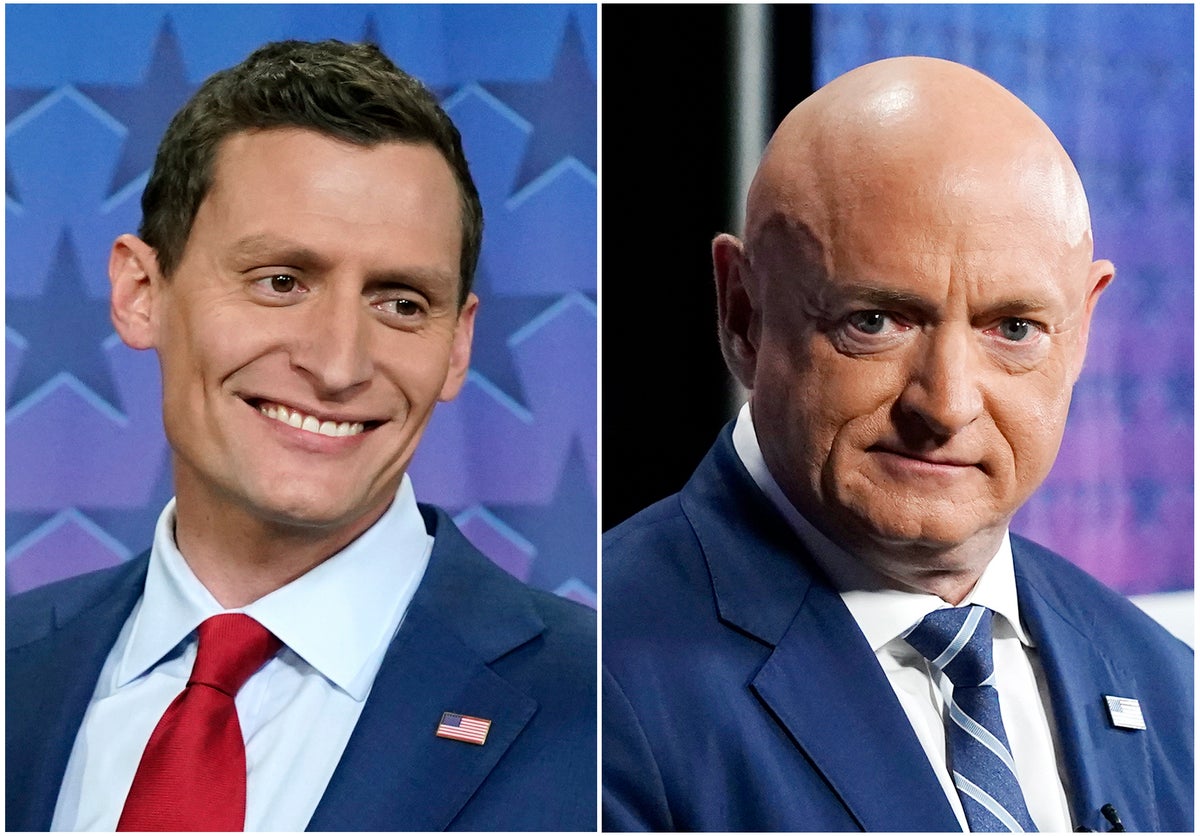
Arizona Sen. Mark Kelly has been fighting to hold on to the seat he won for Democrats two years ago, but he faced a vastly different political environment heading into Tuesday's election against Republican venture capitalist Blake Masters.
Kelly's 2020 special election victory gave Democrats both of Arizona's Senate seats for the first time in 70 years. It was propelled by the state's fast-changing demographics and the unpopularity of then-President Donald Trump.
This time, the unpopular president, Joe Biden, is from Kelly's own party, and the environment looks less favorable for Democrats.
The Arizona race is one of a handful of contests that Republicans targeted in their bid to take control of what is now a 50-50 Senate. It's a test of the inroads that Kelly and other Democrats have made in a state once reliably dominated by Republicans and will offer clues about whether Democratic success here was an aberration during the Trump presidency or an enduring phenomenon.
Kelly has distanced himself from Biden, particularly on border security, and plays down his Democratic affiliation. Masters emerged bruised from the contentious Republican primary and struggled to raise money, but polls suggest the race is nonetheless close.
Kelly's political identity as been defined by two pieces of his biography. He flew in space four times as a NASA astronaut. And he's married to former U.S. Rep. Gabby Giffords, who inspired the nation with her recovery from a gunshot wound to the head. The shooting during a 2011 constituent event in Tucson killed six people and injured 13. Kelly and Giffords went on to co-found a gun control advocacy group.
Kelly’s campaign has largely focused on his support for abortion rights, protecting Social Security, lowering drug prices and ensuring a stable water supply in the midst of a drought, which has curtailed Arizona’s cut of Colorado River water.
He's styled himself as an independent willing to buck his party, in the style of Republican U.S. Sen. John McCain, whose death led to the special election that Kelly won in 2020.
Masters has tried to penetrate Kelly’s independent image, aligning him with Biden's failure to secure the U.S.-Mexico border and tamp down on rampant inflation.
“Mark Kelly is no John McCain. He’s not even a Krysten Sinema," Masters said at a campaign event last month, referring to Arizona's senior senator known for political fights with her fellow Democrats. “He's a rubber stamp vote for Joe Biden’s agenda.”
Masters won Trump's endorsement after claiming “Trump won in 2020.” Under pressure during a debate last month, he acknowledged he hasn't seen evidence the election was rigged, but later doubled down on the false claim that Trump won.
Masters, 36, worked for most of his adult life for billionaire tech investor Peter Thiel, who bankrolled Masters' primary run but was stingier during the general election. Masters endeared himself to many GOP primary voters with his penchant for provocation and contrarian thinking. But since then, he has struggled to redefine his image for the more moderate swing voters who will decide Tuesday's election.
During the primary, Masters called for privatizing Social Security, took a hard-line stance against abortion and promoted a racist theory popular with white nationalists that Democrats are seeking to use immigration to replace white people in America.
Masters later scrubbed some controversial positions from his website.







